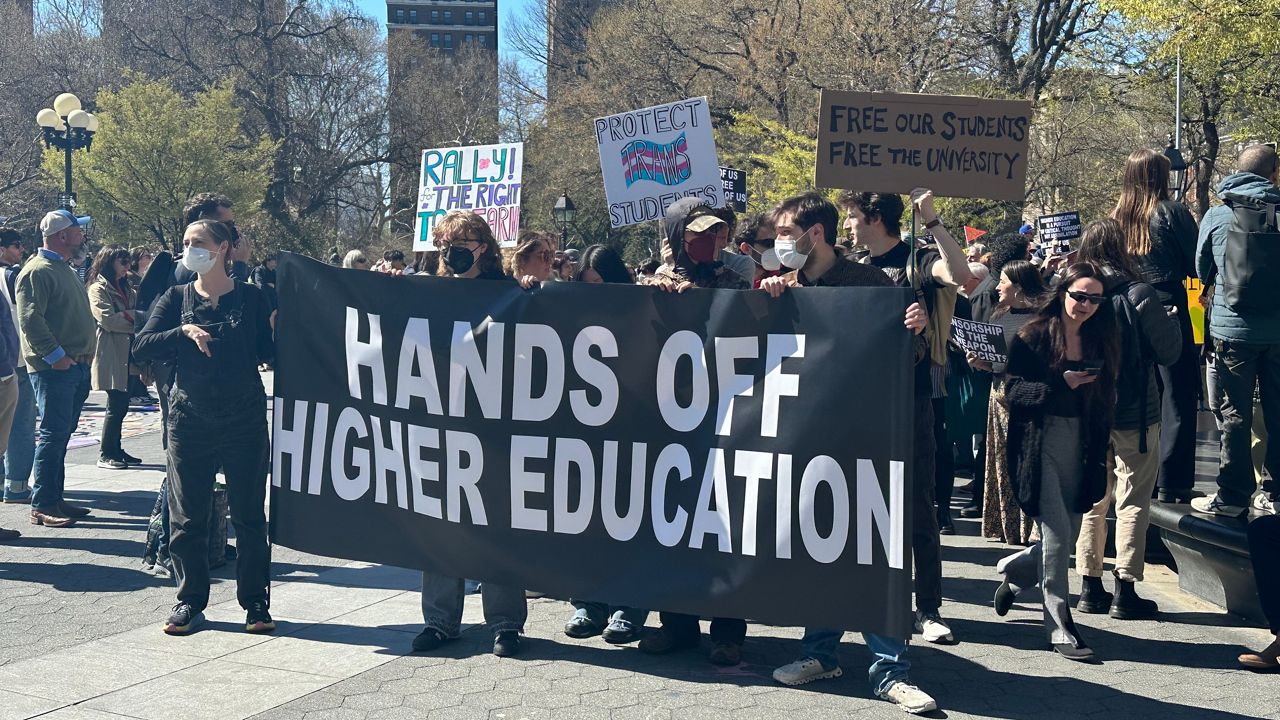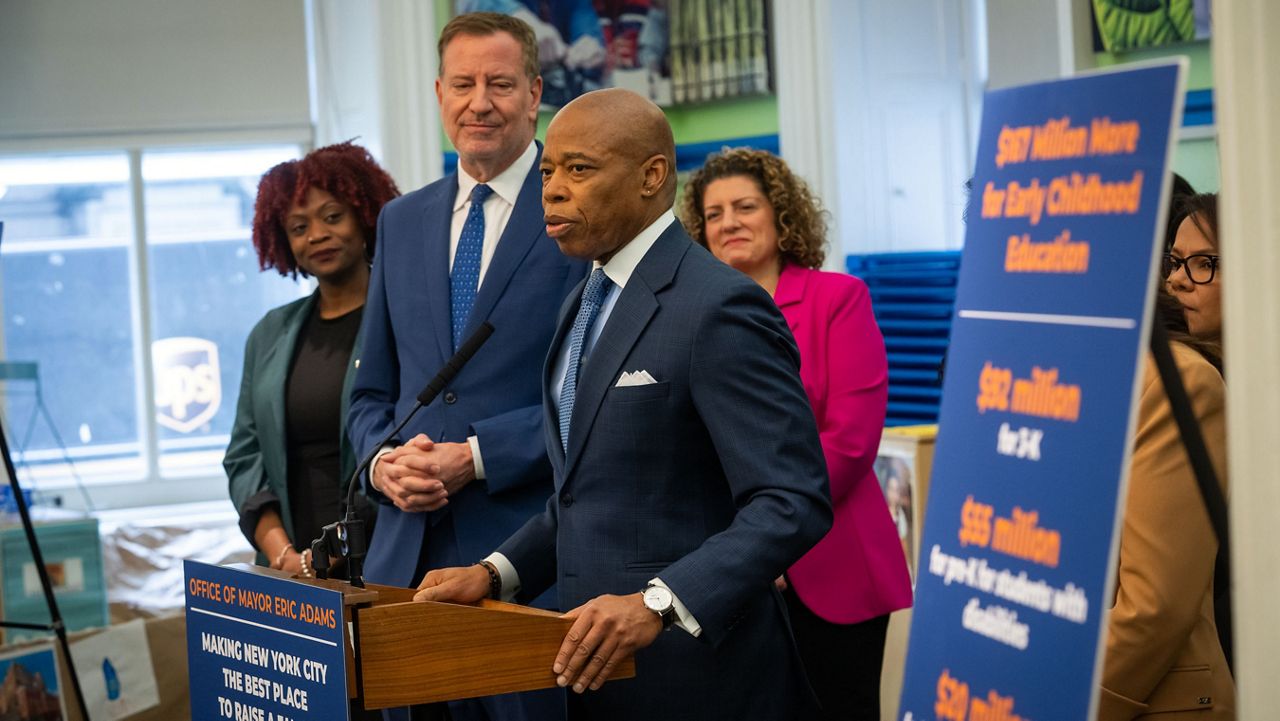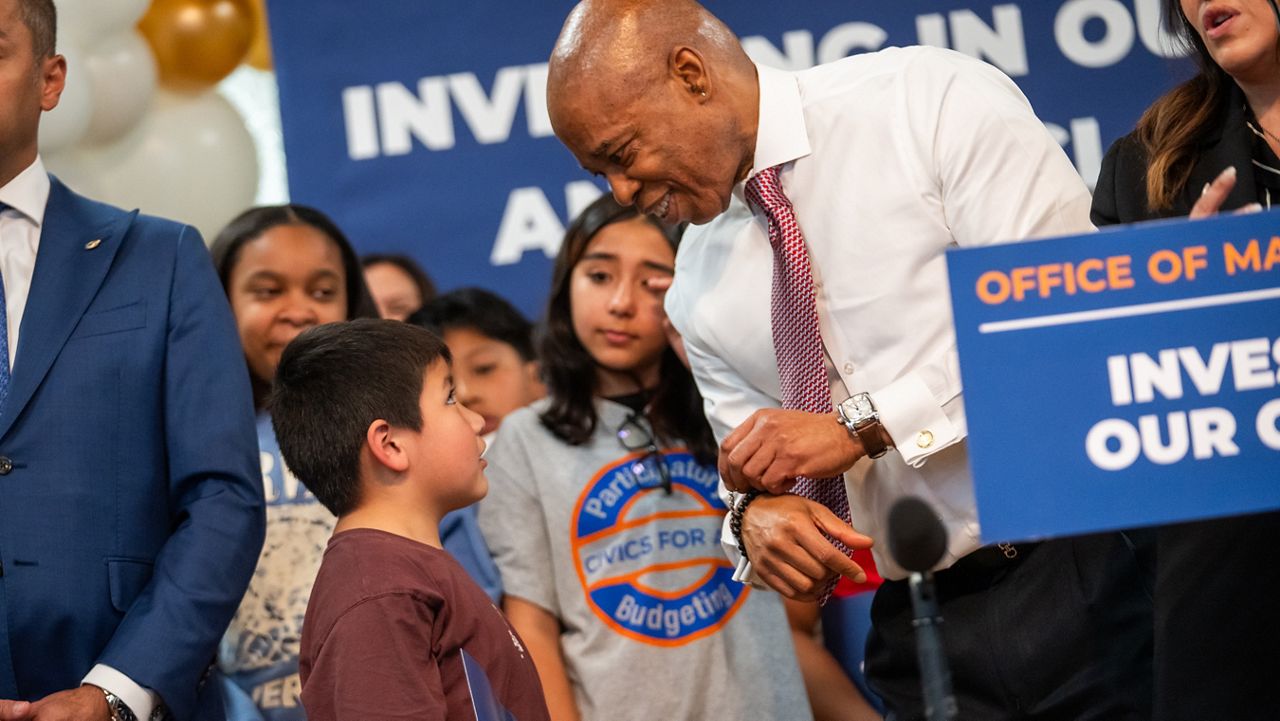Last week, superintendents and other top education officials gathered in an ornate conference room, and Sean Davenport, the superintendent of District 5 in Harlem, was in the hot seat.
No, really, that’s what they call it.
“It was exhilarating in a sense, you know, getting questions about what you're doing to improve student achievement in your district,” Davenport said. “It's kind of edgy, but warranted, right? We're not in here just to have no accountability.”
He was there for a superintendent hot seat meeting, part of Schools Chancellor David Banks’ efforts to increase autonomy — and accountability — for the city’s 45 district superintendents. They present data about student performance and individual schools, and get grilled by their fellow superintendents and top DOE staff on it. Then, they're offered advice and resources to help.
“The questions are supposed to be purposefully agitating to unearth where we're doing things well, and we're not doing things well as part of our learning, right?” said Deputy Chancellor Desmond Blackburn. “And so we do that part. And then we all come together to provide recommendations and solutions as well.”
It comes after the DOE has shaken up its management structure, removing the position of "executive superintendent" and giving more power to the 45 superintendents who oversee community school districts.
All of the superintendents had to re-apply for their jobs, and when they're in the hot seat, they're tasked with showing their work.
“This administration didn't just go through the selection exercises, and then re-appropriate resources, human resources and financial resources in order to empower those superintendents, just because," Blackburn said. "We did those things as a means to an end. And that end is a better performing student citywide. And so when we do this, we are putting our own theory to test.”
The meetings aren’t public, and NY1 was not permitted to attend in full, due to what the Education Department says is discussion of sensitive student and staff data. We joined during the solutions portion of the meeting when superintendents in the hot seats are able to ask for resources like a new math coach.
“We started the year in July, and we got our personnel from the borough office and the first thing we noticed is we were at 18 percent grade level on math, but we didn’t have a math coach,” Davenport told the room when offered a moment to ask for help from the DOE’s central staff.
Blackburn, the deputy chancellor, likens it to a team gathering in a locker room to discuss what’s working, and what isn’t.
“Bosses, supervisors can add one level of productive tension, if you will. But there's nothing but nothing like needing to present in front of your peers, the women and men who do the work that you do,” he said.
It’s not always easy.
“The hardest part is, is really hearing about the deficiencies of your students. And you already know them, but then when you hear it out loud again and from your colleagues, it's like, we just have to do better. And so knowing that our kids are not where they need to be, that's hard,” Davenport said.
The meetings can get tense, so they end with mindfulness exercises and the promise to keep improving.
“We're here to ensure that when moms and dads and aunts and uncles and grandparents and guardians bring children to our doorsteps every day, they are leaving every day better off, okay, academically, socially, you name it,” Blackburn said.









